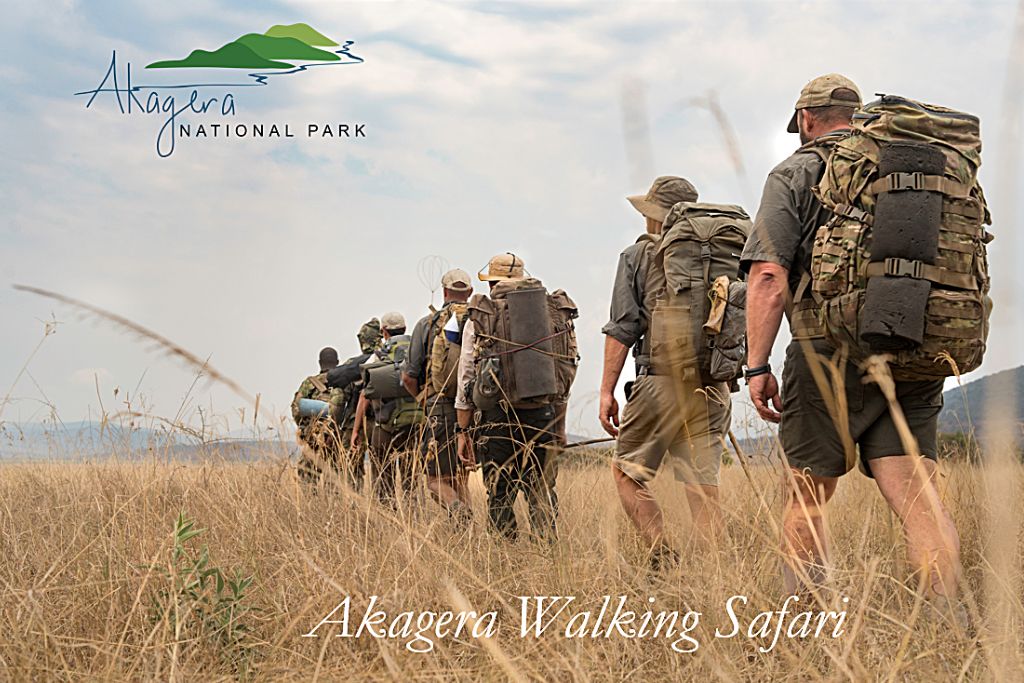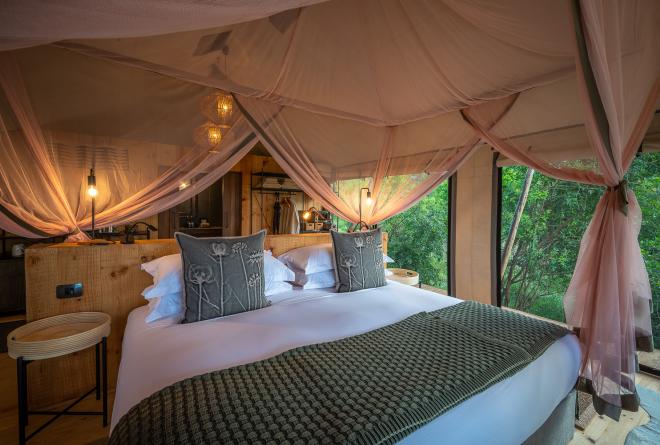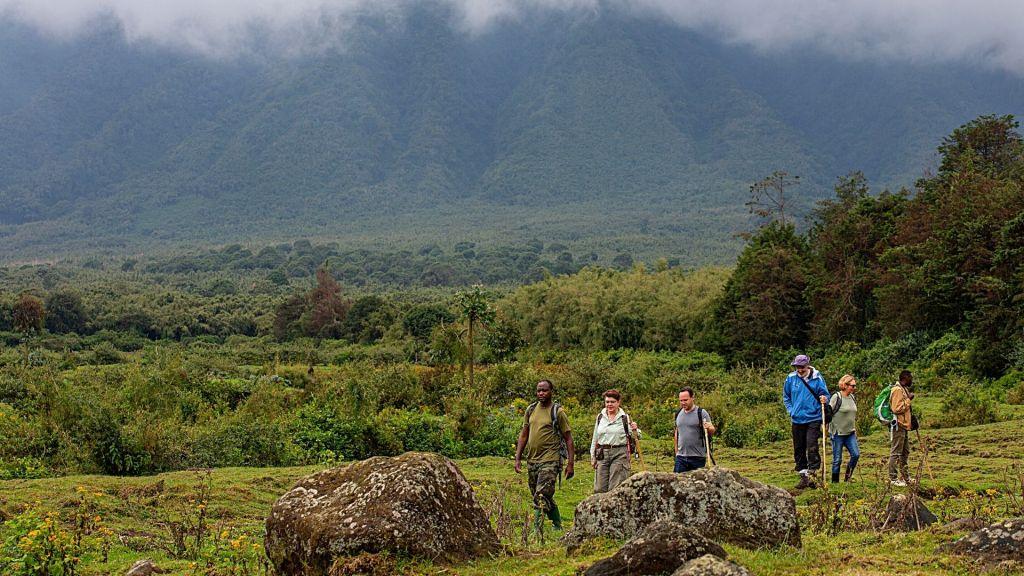
3 Nights Walking Safari in Akagera National Park
A Walking safari in Akagera is here. Are you looking for more “intimacy with Mother Nature” kind of wilderness Experience in Rwanda’s only savannah-dominated National Park? Our three-night walking safari in Akagera National Park offers African bush lovers the once-in-a-lifetime opportunity of uncovering the raw wilderness with armed Ranger guides as a way of ensuring safety while being close to the intricate details of Mother Nature as well as losing oneself in the sweeping breathtaking landscapes of Akagera National Park. Book Now
Highlights of the three-night walking safari in Akagera National Park
For the first day of our three-night walking safari in Akagera National Park, we drive to the Eastern side of the country, where Rwanda’s only savannah National Park is found. It is a two-and-a-half to three-hour drive to this stunning 1122-square-kilometer Protected Area. We converge at the starting point and begin the 5-kilometer walk to Mutumba Campsite where we spend the night to have a more bush experience. This Campsite is located in the extreme North of the Park within a wildlife-rich area of high-rolling grassland hills. It is fenced hence be assured of your safety from stray animals while Camping. It will interest you to know that this is the highest point in Akagera National Park and is popular for its huge numbers of animals, especially giant elands, and Roan antelopes and therefore camping here provides the up-close encounter with these animals.
On the second day of our three-night/four-day walking Safari in Akagera National Park, we shall embark on a 10-kilometer walk from Mutumba Campsite to Lake Mihindi, still in the Northern part of the Park. Enjoy the views of the landscapes in the form of rolling hills, the Lake, the rock kopjes, and rare wildlife species that include Hippos, Oribis, impalas, bushbucks, and lots of bird species. Mihindi Campsite where we shall be spending a night is set along the shores of Lake Mihindi and has a low-lying electric fence to fend off Hippos and other wildlife, a Café/coffee shop (that was converted from an old research house) for snacks and drinks, Barbeque facilities and an ablution block with solar-heated showers and flushing toilets.
For our third day of the three-night walking safari in this beautiful Protected Area, we continue to walk another 10 kilometers to the Kilala Plains, the second largest Plains in the Park and sits at the extreme northwestern side of Lake Rwanyakazinga. While on this walk, sights of Oribis, Defassa waterbucks, Masai giraffes, and sometimes the elusive leopards, spotted hyenas, Zebras, Jackson’s hartebeests, Cape buffaloes, and impalas are unmissable, and not forgetting the lush vegetation and surroundings. We shall be spending the night at Karenge Bush Camp. This 6-Tented low-impact Bush Camp is one of the eco-friendly accommodation facilities in Rwanda and is open 11 months a year (closing in April).
Our three-night Walking Safari Package includes Camping equipment (especially Tents at Mutumba and Mihindi Campsite), one-night accommodation at the extraordinary Karenge Bush Camp, Entry and Camping fees, Ranger guides, Bottled water for the entire 3-night walking safari, snacks, some meals (especially breakfasts and dinners), Ground transportation from Kigali to the starting point/entry gate and back.
What to pack for this three-night Walking Safari in Akagera National Park
Don’t forget to pack a reusable water bottle as a way of reducing plastic use, bedding (because the trip mainly involved Camping), sturdy and comfortable hiking boots, a waterproof backpack, the appropriate hiking/walking clothes (long-sleeved shirts, safari pants in khaki or neutral color), energy-giving snacks, a good camera for capturing all the precious moments, a pair of binoculars, a wide-brimmed hat, toiletries (in form of toothpaste, lotion, sunscreen, toothbrush), insect repellant, and others.
Travel through Rwanda and explore other wildlife-rich regions, to get a sense of the country’s incredible biodiversity, including visits to observe the mountain gorillas in Volcanoes National Park and Chimpanzees in Nyungwe Forests.



